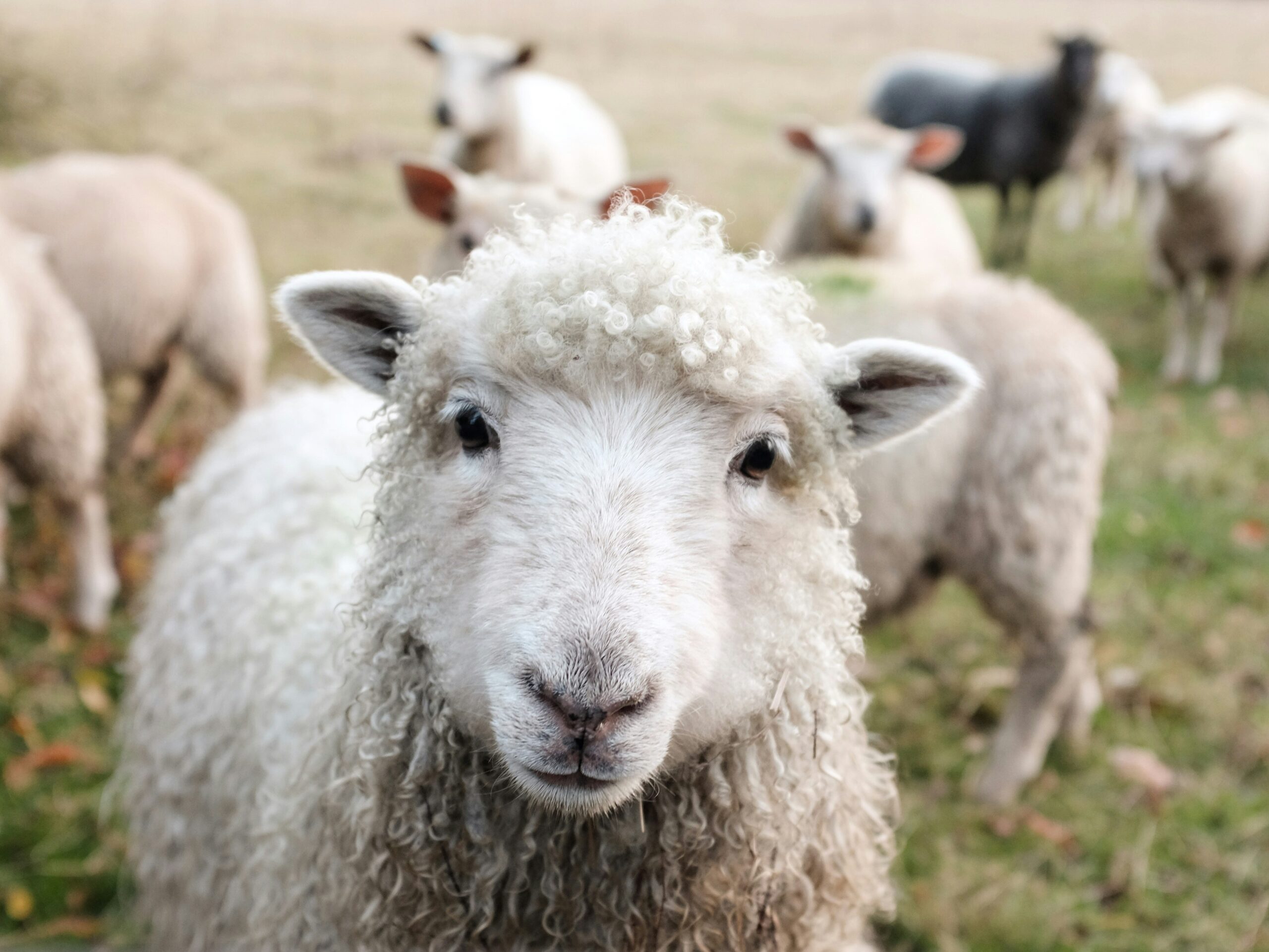Introduction to Farm Membership Programs
Farm membership programs have gained notable traction in recent years, establishing a mutually beneficial relationship between consumers and local agricultural producers. At their core, these programs offer individuals the opportunity to connect directly with farms, ensuring a steady supply of fresh, seasonal produce and other farm products. Members typically pay an upfront fee or subscription to receive regular deliveries or access to farm goods, creating a streamlined and efficient purchasing experience.
As consumers increasingly seek sustainable choices and transparency in their food sources, farm membership programs serve as a solution to fulfill these desires. By joining such programs, members foster a direct line of communication with farmers, allowing them to understand the sourcing practices and environmental stewardship efforts that underpin their food. This connection not only enhances the consumers’ shopping experience but also supports local economies and preserves regional agricultural practices.
Moreover, farm membership programs often promote community engagement, offering members activities such as farm tours, workshops, and seasonal events. These experiences provide insight into the farming process, while additionally encouraging healthy habits and appreciation for where food comes from. Farmers benefit as well, as these programs help stabilize their income and foster a dedicated customer base that values sustainable practices.
The rising trend of farm membership programs is a response to the increasing awareness regarding food production and environmental impact. As more people prioritize food quality and sustainability, these programs present a unique opportunity for individuals to engage with their local agriculture, support small farms, and enjoy fresh, nutritious products. Overall, farm membership programs embody a model of cooperative consumption that aligns the interests of consumers and producers alike.
Types of Membership Programs Offered by Farms
Farm membership programs vary significantly, providing numerous opportunities for consumers to engage with local agriculture. One popular model is Community Supported Agriculture (CSA), where members purchase a share of a farm’s harvest in advance. Typically, members receive a weekly or bi-weekly basket of fresh, seasonal produce. This arrangement fosters a direct relationship between consumers and farmers, ensuring fresh produce while supporting local agricultural practices. An example of this is the Hickory Nut Gap Farm CSA, which offers a range of fruits and vegetables from local farmland every week throughout the growing season.
Another prevalent type of membership program is subscription boxes. These programs often go beyond just fruits and vegetables, including items such as dairy, meats, and artisan products curated from various farms. Through a subscription box, members can enjoy the convenience of having fresh, high-quality food delivered directly to their doorstep. For instance, the Farmbox Direct program allows customers to customize their boxes based on preferences, accommodating various dietary requirements while promoting local farms.
Farm tours represent an experiential membership offering that educates consumers about farming practices and the agricultural landscape. Members might gain access to exclusive tours, allowing them to experience the farm firsthand, learn about sustainable farming techniques, and gain insights into food production. Farms like Buttermilk Falls Farm offer seasonal tours that provide an immersive experience, deepening the members’ understanding of where their food comes from.
Lastly, workshops are another avenue pursued by farms aiming to engage their members actively. These programs often cover topics such as organic gardening, canning, and farm-to-table cooking, providing valuable skills and knowledge. For example, Terra Firma Farm conducts workshops that educate participants on sustainable farming methods, enhancing their appreciation for local agriculture while building a community among members.
Exclusive Benefits for Farm Members
Farm membership programs offer numerous exclusive benefits that cater to the preferences and needs of their members. One of the most notable perks is the opportunity to enjoy discounts on fresh, organic produce. Many farms provide their members with lower prices on a selection of fruits, vegetables, and other farm products, encouraging healthier eating habits and supporting local agriculture. This cost-saving aspect not only fosters a strong community but also promotes loyalty among members.
In addition to discounts, members also gain access to special events hosted by the farm. These events may include seasonal harvest festivals, tours, or farm-to-table dinners that celebrate local cuisine and agriculture. Such occasions offer members a chance to connect directly with farmers and other community members who share an interest in sustainable practices. This interaction deepens their understanding of farm operations and supports the bond between consumers and producers.
Furthermore, priority registration for workshops is another significant advantage of joining a farm membership program. Members often have the first opportunity to sign up for educational sessions where they can learn about various topics, such as gardening, cooking, or sustainable farming methods. These workshops not only enrich members’ knowledge but also empower them to cultivate their skills and interests in agriculture.
Moreover, exclusive farm products are often available solely to members, enhancing their experience and fostering a sense of belonging. For example, certain preserves, specialty cheeses, or unique seasonal produce may only be available to those who hold a membership. This exclusivity not only increases the perceived value of memberships but also encourages members to appreciate the diverse offerings presented by local farms.
How Membership Supports Local Agriculture
Membership programs play a crucial role in sustaining local agriculture and enhancing the economic viability of farms. By engaging consumers directly with the farming community, these programs create a bond that strengthens local economies. Members often contribute financial support through subscription fees or purchase of products directly from farms, allowing farmers to invest in their operations and cultivate sustainable practices. This financial backing enables farms to acquire necessary resources, such as seeds, equipment, and labor, which are vital for efficient farm management.
Moreover, membership programs encourage diversification in agricultural practices, promoting organic farming and environmentally friendly methods. By supporting local farms, members help farmers maintain their commitment to sustainable agriculture—practices that positively impact soil health, biodiversity, and the surrounding environment. The assurance of a steady revenue stream from dedicated members allows farmers to take calculated risks, such as experimenting with new crop varieties or implementing innovative techniques that may increase productivity in the long run. This innovation is essential to meet the evolving demands of consumers who increasingly prefer high-quality, sustainably produced food.
Additionally, membership programs foster community ties by facilitating connections between consumers and producers. When members participate in farm events, volunteer opportunities, or educational workshops, they become more engaged in understanding the local agricultural landscape. This knowledge exchange cultivates a sense of responsibility towards supporting sustainable practices and encourages a shift in consumer habits. As more individuals recognize the importance of sourcing food locally, the agricultural economy thrives, ensuring that farms remain integral components of the community. In essence, through active membership engagement, local agriculture is not only supported but also empowered to flourish in a rapidly changing economic environment.
Success Stories: Farms Thriving with Membership Models
In recent years, an increasing number of farms have adopted membership models, resulting in transformative changes to their operations and community engagement. These farms, through creative and strategic approaches, have managed to leverage the benefits of membership programs, allowing them to thrive in an evolving agricultural landscape.
One notable example is a community-supported agriculture (CSA) program established by a small farm in Oregon. By offering seasonal memberships to local customers, the farm ensured a steady revenue stream while fostering a strong relationship with the community. Members received fresh produce weekly, creating a sense of belonging and investment in the farm’s success. The farm reported a significant increase in revenue, enabling them to expand their operations and invest in sustainable farming practices.
Similarly, a dairy farm in Wisconsin embraced a membership model to diversify its offerings. By creating a subscription service for its artisanal cheese, the farm attracted both local residents and visitors interested in high-quality, locally sourced products. This shift not only bolstered revenue but also improved brand loyalty, as customers often shared their positive experiences online, driving further awareness and membership growth.
Moreover, a vineyard in California opted to implement a wine club membership, providing members with exclusive access to limited-edition bottles and behind-the-scenes tours. This strategy not only increased sales but also cultivated a dedicated community of wine enthusiasts. The vineyard’s ability to connect deeply with its members led to enhanced customer experiences and a solid foundation for future growth.
These success stories illustrate the potential that membership models hold for farms. By fostering direct relationships with customers and creating unique offerings, farms can not only increase their profitability but also enhance the overall agricultural ecosystem within their communities. It is clear that these innovative approaches are paving the way for more sustainable and engaged agricultural practices.
How to Choose the Right Farm Membership Program
When considering a farm membership program, it is essential to assess various factors to ensure that the chosen program aligns with your personal values and needs. One of the first aspects to contemplate is the location of the farm and its proximity to your home. Selecting a local farm not only supports local agriculture, but it also guarantees access to fresh, seasonal products that are often not found in conventional grocery stores.
Next, evaluate the types of products offered by the farm membership program. Different farms may specialize in various types of produce, meats, dairy, or other goods. Determine what is essential for you and your family; for instance, if you are interested in organic produce, ensure the farm adheres to organic farming practices. Additionally, certain farm memberships may offer unique products, such as heritage varieties of vegetables or specialty items like homemade jams or cheeses, which can enhance your culinary experiences.
Another critical factor to consider is the frequency of member benefits, which can vary widely among farms. Some programs may provide weekly or bi-weekly delivery of products, while others might offer seasonal pick-ups or special events for members. Consider your lifestyle and dietary needs when evaluating the frequency of these benefits. Regular access to fresh products can significantly impact meal planning and enhance your overall enjoyment.
Lastly, take time to read reviews or engage with the farm’s community, if possible. Understanding the experiences of existing members can provide invaluable insights into what you can expect from the program. By carefully considering these factors—location, product variety, frequency of benefits, and community feedback—you can confidently choose a farm membership program that meets your expectations and contributes to a sustainable food system.
Tips for Getting the Most Out of Your Membership
To truly optimize your experience with farm membership programs, it is essential to approach your membership with an active mindset. One of the primary ways to gain value from your membership is by attending events organized by the farm. These events, ranging from seasonal festivals to exclusive workshops, are excellent opportunities to engage with the farming community. Participating in such events not only enables you to enjoy fresh produce and unique farm experiences but also allows you to network with other members and farm staff, fostering a sense of community.
Moreover, exploring educational opportunities should be one of your focal points. Many farm membership programs offer workshops, cooking classes, and seminars focused on sustainable farming practices, nutrition, and cooking techniques. These educational sessions are integral to understanding the broader implications of sustainable agriculture and can significantly enhance your appreciation for local farming. By taking part in these programs, you will not only gather useful knowledge but also contribute to your farm’s commitment to education and sustainability.
Additionally, engaging actively with farm staff can greatly enhance your membership experience. Don’t hesitate to ask questions, seek advice on gardening or cooking, or inquire about farm operations. Staff members often possess a wealth of knowledge and are more than willing to share their expertise with members. It is also beneficial to connect with other members by participating in discussion forums or group activities. Collaboration and sharing experiences with fellow members can lead to richer insights and inspiration.
Overall, being proactive and involved is key to maximizing the benefits of your farm membership. By attending events, embracing educational opportunities, and engaging with both staff and fellow members, you can unlock the full potential of your membership and enrich your connection to local agriculture.
The Future of Farm Membership Programs
As the landscape of agriculture continues to evolve, farm membership programs are increasingly integrating technology and innovative practices to enhance member engagement and streamline operations. At the forefront of these changes is the rise of online memberships, which allow individuals to connect with farms without the constraints of geographical location. This shift not only provides convenience for consumers but also allows farms to broaden their outreach beyond traditional boundaries.
Moreover, the incorporation of technology is setting the stage for enhanced member experiences. For instance, farms are investing in software solutions that facilitate real-time communication, enabling members to receive updates on crop status, upcoming events, and new offerings. Additionally, some farms are utilizing mobile applications that allow members to manage their subscriptions, access educational resources, and even order products directly from their devices. This tech-driven approach fosters a stronger sense of community while also ensuring transparency regarding farming practices.
Another emerging trend is the potential for expansion into urban areas. Urban agriculture, combined with farm membership programs, creates a unique opportunity for city dwellers to engage with local food systems. By fostering partnerships between urban communities and rural farms, these programs can enhance sustainability efforts and contribute to food security in metropolitan environments. Ultimately, this will cultivate a deeper appreciation for where food comes from and the farming methods employed to produce it.
As these trends continue to gain momentum, the future of farm membership programs promises to be dynamic and multifaceted. The interplay of technology, online accessibility, and urban expansion will not only reshape member engagement but also redefine the way consumers interact with agriculture. In this evolving landscape, it is essential for farms to adapt and innovate while remaining committed to their core mission of fostering community and sustainable practices.
Conclusion: Join the Movement Towards Sustainable Agriculture
In an era where environmental sustainability and community health are paramount, joining a farm membership program stands out as a proactive choice. Throughout this blog post, we have explored the numerous benefits offered by these programs, which not only prioritize access to fresh, local produce but also contribute to the overall health of our ecosystems. A farm membership fosters a direct connection between consumers and local farmers, enhancing transparency in the food supply chain and promoting sustainable farming practices.
Moreover, supporting local agriculture through membership initiatives bolsters regional economies, creating opportunities for local farmers to thrive. By purchasing directly from farms, members can ensure their investment remains within the community, assisting in the preservation of rural employment and the stability of local markets. This symbiotic relationship enhances food security and nurtures a more resilient food system capable of withstanding various economic pressures.
The importance of joining a farm membership program extends beyond immediate benefits such as discounts or exclusive access to seasonal produce. It represents collective empowerment, uniting individuals and families in support of sustainable agricultural practices that ensure the availability of healthy food options for generations to come. Additionally, by becoming a member, individuals play an active role in influencing agricultural policies and practices that align with community values regarding health, sustainability, and local heritage.
In light of these compelling reasons, we encourage readers to consider enrolling in a farm membership program. This choice is not only a personal investment in one’s health and wellbeing but also a crucial step towards fostering a sustainable future for our communities and the agricultural landscape. The movement towards sustainable agriculture begins with us; together, we can make a difference.





